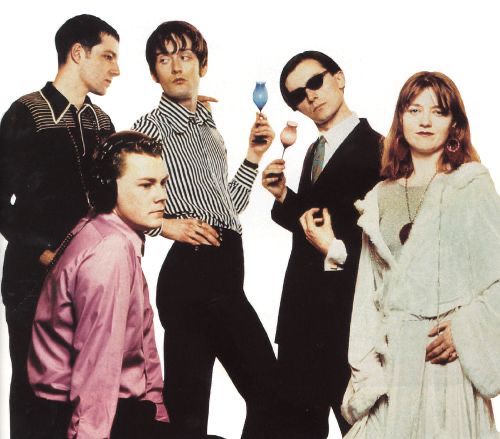By Georgina Lloyd-Kitchen

What does it mean for a band to return? Not just to stages, but to relevance, to urgency, to the marrow of culture itself? With More, their first studio album in 24 years, Pulp have not so much reappeared as reasserted, navigating the choppy waters of nostalgia and expectation with a clarity of voice that is as confrontational as it is self-aware. It’s a slow, uneasy, dance with entropy, with everything that’s been lost, aged, and exposed. This is not a comeback. This is a continuation.
There’s a peculiar dignity in that. Where many reunions chase immediacy, More dares to dwell. Not to recapture the ecstasy of Common People, or the razor-sharp perversity of This Is Hardcore, but to ask harder questions: What happens after irony grows brittle? When class resentment becomes systemic fatigue? When the body, once fuelled by lust and performance, begins to falter but refuses to go silent?
Desire as Decay
If Common People was a class-war dance anthem, More is its hungover reflection in the mirror. The battle lines are still there, but the terrain has shifted. The album aches with political undertones; not via slogans, but through the friction of intimacy, inequality, and age. Take “Got to Have Love,” a highlight whose title nods to Different Class‘s lasciviousness but trades flamboyance for slow-burning confrontation. “Without love, you’re just jerking off inside someone else,” Jarvis Cocker sings. It’s brutal, sad, true. And like much of More, it’s deeply political, because in a commodified world, even desire becomes transactional.
The sexual politics that once skewered yuppie ‘slummers’ and posh students pretending at poverty now turn inward. The bourgeoisie doesn’t need to play dress-up anymore. It owns the stage. So instead, Pulp gives us interiority: private collapse, lovers alienated by performance, emotional numbness in a world that monetises feeling. Class still lurks in the shadows, but now it’s fused with the fear of disconnection, the slow erosion of self-worth.
Songs of the Not-Quite-Dead
What defines More isn’t a sonic signature so much as a sonic weathering. The arrangements are unfashionable, wilfully so; lush strings, muttering synths, brittle percussion. James Ford’s production doesn’t chase immediacy. Instead, it embraces texture: frayed edges, whispered menace, orchestral decay. Every song feels like it’s trying to hold something together before it falls apart.
On “Grown Ups,” Cocker dismantles middle age with his signature smirk and sting. Gone are the fantasies of suburban orgies or city thrills. In their place: the dull throb of regret, the ambivalence of survival. “The Hymn of the North” mourns both place and purpose. A Sheffield elegy that reads like a love letter written too late.
A New Kind of Politics
Pulp’s politics have always been more tactile than theoretical. Their best songs aren’t essays; they’re provocations. On More, the provocation is subtler but no less sharp: What if the most radical thing you can do isn’t to shout, but to describe the quiet disintegration of everything that once seemed solid?
Unlike their ‘90s peers who’ve either faded or become parodies of themselves, Pulp do not seem interested in giving audiences what they want. There are no obvious hits here. No blatant anthems. Instead, More feels like a refusal. A rejection of the idea that legacy artists must reheat old formulas to stay relevant.
Yet More is relevant, precisely because it resists nostalgia. It speaks to a generation that’s aged into uncertainty, to listeners who no longer want escapism but recognition. It understands that in 2025, the revolution isn’t coming, and the rent is still due. But it also reminds us that art can still mean something. That memory is not just longing, but material. That desire, even in decay, still pulses.
More doesn’t want to be liked. It wants to be lived with. It demands patience, discomfort, and a willingness to trace its cracks. It is not an event album; it is a slow unfolding. And in that slowness, Pulp reveal themselves not as relics of Britpop, but as artists uniquely equipped to articulate the dissonance of middle age, of late capitalism, of being a body in decline with a brain that still burns.
And that, perhaps, is the most radical thing More achieves: it doesn’t just mark Pulp’s return. It marks the return of music that dares to sound like life itself. Messy, ageing, unclassifiable, and unafraid to demand more.
Written by Georgina Lloyd-Kitchen
Leave a Reply